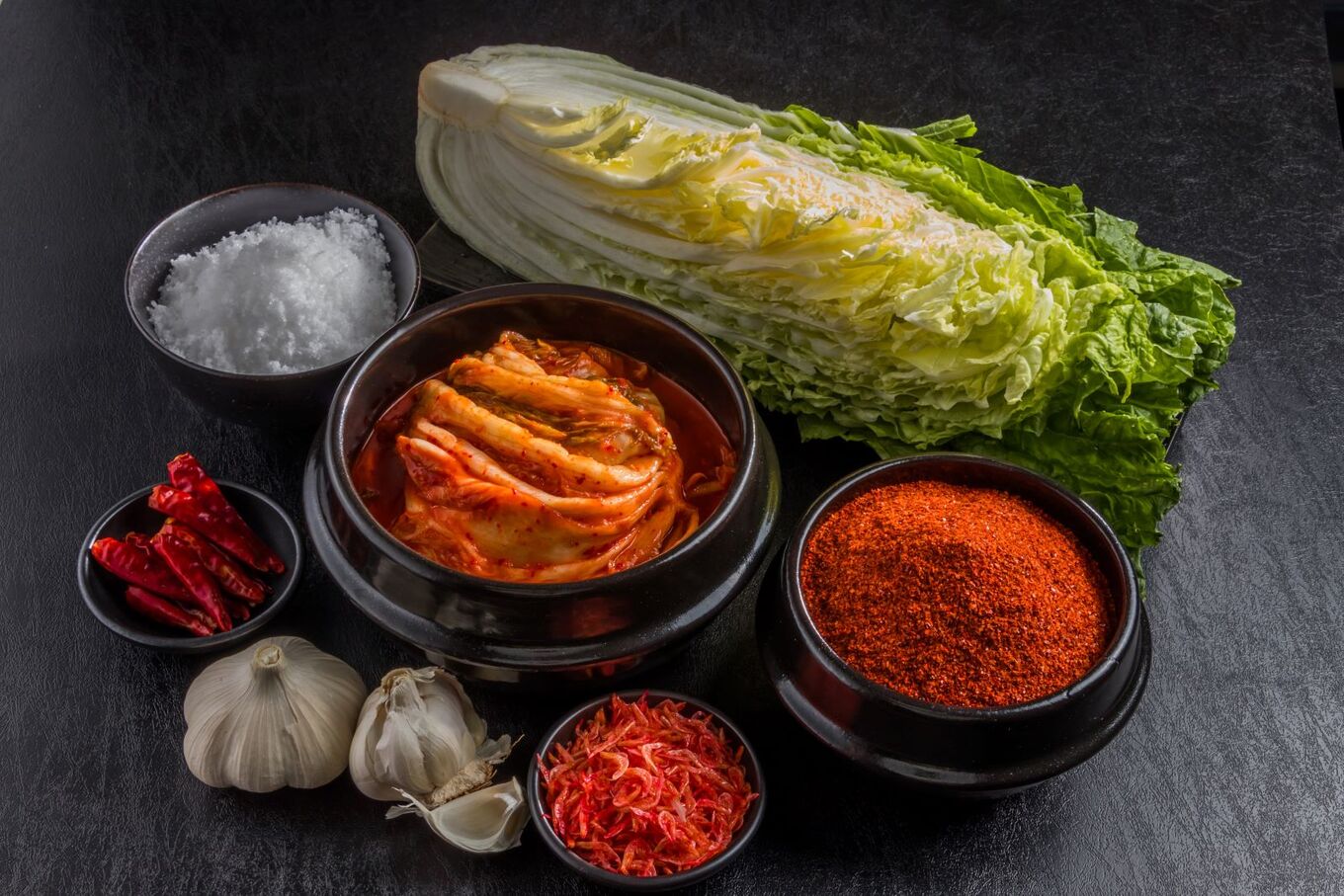Actress Jessica Alba has long acknowledged her love for kimchi. In fact, she claims that she has been eating the now-popular fermented food since she was four years old.
Alba’s kimchi devotion was recently revealed on her YouTube channel. In a cooking video with her daughter, Haven, and chef Matt Broussard, in which they make kimchi quesadillas together, Alba mentions how much she loves it.
“I freaking love kimchi,” Alba responds when Haven asks her mom if she likes the traditional Korean dish.
Kimchi is made by fermenting vegetables like cabbage and radish with various flavorings and seasonings such as onion, garlic, and fish sauce. However, vegan versions of the popular fermented food, made without fish sauce, are widely available.
 Jessica Alba/YouTube
Jessica Alba/YouTube
Luckily, the traditional Korean staple food has been shown to have many health benefits. It is low in calories and rich in lactic acid bacteria that enhance the microbiome, dietary fiber, vitamins, and polyphenols. And because it’s a fermented food, it boasts numerous probiotics, which may help regulate your immune system, promote weight loss, fight inflammation, and even slow the aging process.
Kimchi’s effect on obesity risk
A new study published in the open access medical journal BMJ Open also suggests that incorporating up to three daily servings of kimchi may significantly lower the risk of obesity, particularly in men. Notably, the research reveals that radish kimchi is associated with a reduced prevalence of midriff bulge in both men and women.
The study, drawing on data from the Health Examinees (HEXA) study, included 115,726 participants with an average age of 51 (36,756 men and 78,970 women). The HEXA study, a large community-based long-term study within the Korean Genome and Epidemiology Study, focuses on examining environmental and genetic risk factors for common long-term conditions among Korean adults aged 40 and above.
Participants’ dietary intake over the previous year was assessed using a validated 106-item food frequency questionnaire. The study considered various types of kimchi, including baechu (cabbage kimchi), kkakdugi (radish kimchi), nabak, dongchimi, and others. Portion sizes were defined, and measurements such as height, weight, body mass index (BMI), and waist circumference were recorded.
 Adobe
Adobe
The researchers found a J-shaped curve in the results, indicating that higher kimchi consumption correlated with higher intake of total energy, carbohydrates, protein, fat, sodium, and cooked rice. However, after adjusting for influential factors, consuming up to three daily servings of kimchi was associated with an 11-percent lower prevalence of obesity compared to consuming less than one serving daily.
For men, consuming three or more daily servings of baechu kimchi was linked to a 10-percent lower prevalence of obesity and abdominal obesity compared to those consuming less than one daily serving. In women, two to three daily servings of baechu kimchi were associated with an 8-percent lower prevalence of obesity, and one to two servings a day were linked to a 6-percent lower prevalence of abdominal obesity.
Moreover, below-average consumption of kkakdugi kimchi was associated with a 9-percent lower prevalence of obesity in both sexes. Consuming 25 g/day for men and 11 grams a day for women was linked to an 8-percent (men) to 11-percent (women) lower risk of abdominal obesity compared to no consumption.
 Adobe
Adobe
The researchers acknowledge concerns about kimchi’s salt content but suggest that the potassium in fermented vegetables may counteract its effects. The researchers recommend moderate kimchi consumption for the health benefits of its other components.
Benefits of fermented foods
Another recent study, published in the journal Gut Microbiome, aimed to investigate the claims surrounding fermented vegetables—such as kimchi, pickles, and sauerkraut—and their potential effects on the gut microbiome.
The findings of the study revealed that some individuals who regularly consumed fermented foods exhibited potentially probiotic bacteria and fungi in their fecal samples, likely originating from the lacto-fermented vegetables.
 Unsplash
Unsplash
Regular consumption of lacto-fermented vegetables appeared to stimulate bacteria with the potential to produce butyrate, a compound known for its positive effects on gut health.
Additionally, lacto-fermented vegetables had a significant impact on the gut microbiome’s functions and the nutrients used by the microbiome to perform crucial tasks that could potentially influence overall health.
Lead author Kylene Guse, a postdoctoral researcher formerly with the University of Minnesota and now at the University of South Dakota, highlighted that the findings supported existing research demonstrating the benefits of lacto-fermented vegetables for the gut microbiome in individuals following a typical Western diet.
“Our findings support existing research showing that fermented foods, in this case, lacto-fermented vegetables, benefit the gut microbiome and metabolome in people consuming a typical Western diet,” Guse said in a statement.
For the latest vegan news, read:
JUMP TO ... Latest News | Recipes | Guides | Health | Shop









